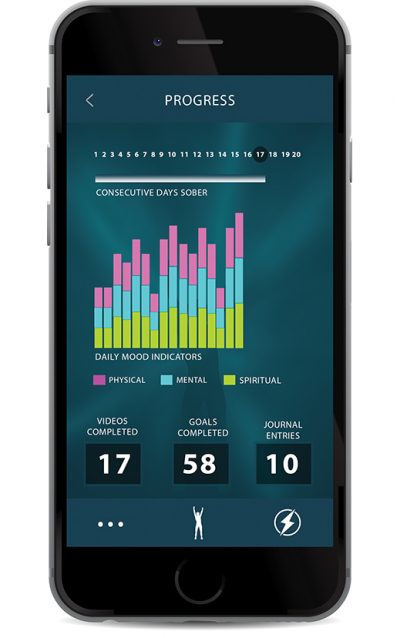
Brian McAlister has witnessed substance abuse from both sides: as an addict for 20 years, and now, 28 years sober, as a recovery expert and author of the book Full Recovery, the Recovering Person’s Guide to Unleashing Your Inner Power (MacSimum, 2015). He’s also the creator of an app, Freedom 365, that offers addiction-recovery tools on smart phones, tablets and desktop computers.
“It’s 24-hour-a-day, 365-day support,” says McAlister of the app. “Everything is designed to interrupt negative thinking that can lead to a relapse.”
McAlister started drinking at 12, was addicted by high school, and at 33 had destroyed his marriage and career. After rehab, he rebuilt his life. In 2005, his sister’s death from a heroin overdose inspired a career in recovery. These days, the Stillwater resident is president and CEO of Full Recovery Wellness Center, a state-licensed facility in Fairfield. He created Freedom 365 to tackle addiction’s biggest obstacles: access to treatment and relapse rates.
“People don’t get treatment for a lot of reasons: the cost, no health insurance, and it’s difficult to leave work or family for 28 days,” says McAlister. And for those who get treatment, relapse rates are as high as 60 percent, according to the National Institute of Drug Addiction.
The app, available at vrsfreedom365.com for $295 per year, starts with 28 days of videos and activities designed to uncover the addiction cause and build a recovery plan. When tempted to relapse, subscribers can click the “empowerment” button, and up pops a list of suggestions like, “attend AA meeting.”
“It’s like having a recovery coach with you all the time,” says Mike Walsh, a recovering addict from Hackensack. “It’s given me a roadmap to recovery.”
McAlister acknowledges the app is not the same as licensed treatment, but is an option for those who can’t afford rehab. Eugene Stefanelli, a psychologist in Verona, says Freedom 365 can serve as a safety net for addicts, especially for the younger generation. “Their phones are their lives,” he says. “It’s convenient; you can use it on your own time.”
